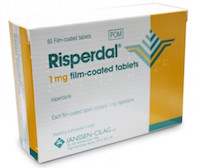
The practice is not uncommon. Doctors are permitted to prescribe whatever medication they see fit in a given situation. Drug companies, however, are not permitted to market their drugs for these off-label purposes. And, regardless of how a prescription comes to be written, drug companies like Johnson & Johnson are required to disclose all side effects that can come about with its use.
J&J and its Janssen Pharmaceuticals subsidiary have been on the legal radar for Risperdal since 2004 when investigators began looking into claims that the drug was, indeed, being marketed by its manufacturer for off-label uses in direct violation of federal law. Having narrowly avoided felony charges in the matter, J&J got out of the investigation after paying a settlement of over $2 billion.
While J&J and Janssen were busy marketing Risperdal for uses it hadn’t ever been approved to treat, they were also leaving out side effects – specifically the drug’s ability to trigger gynecomastia, or the development of breasts in human males. Doctors allege that gynecomastia was never mentioned to them as a possible side effect of Risperdal use.
Nicholas Murray was just one plaintiff out of many who have sued J&J and Janssen in a litany of mass tort litigations over the issue. His name specifically, however, is reverberating throughout the halls of the world’s largest healthcare goods manufacturer.
After a Pennsylvania Superior Court judge cleared the way for punitive damages to be sought in Risperdal gynecomastia cases, Murray’s $1.75 million award, which had been subsequently reduced to $680,000, skyrocketed when a jury issued an $8 billion punitive damage award as well. And, while the award isn’t expected to go unmodified, it does send a message.
“A jury, if it’s outrageous enough conduct,” says University of Richmond School of Law professor Carl Tobias, “will award a big number and let the lawyers and judges work it out.” The only question that remains then is just how outrageous the legal system will find J&J’s behavior during its relentless pursuit of Risperdal profits.
